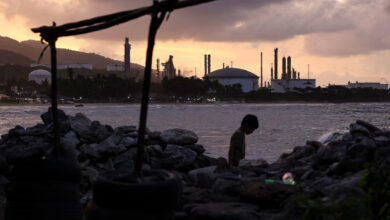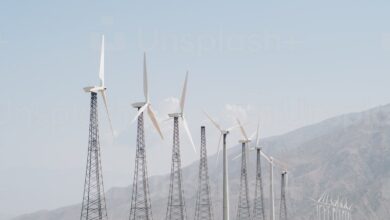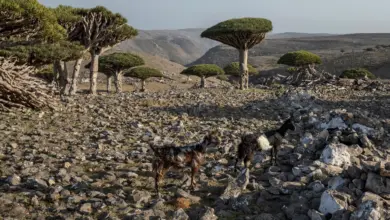Last week, political, religious and scientific leaders from around the world came together to work towards a world free of nuclear weapons. But the goal may still be far off. Even as Russia and the United States come close to a new treaty to reduce their nuclear stockpiles, the Middle East seems on the verge of a full-fledged nuclear arms race.
Global Zero is an initiative aimed at reducing the number of nuclear weapons worldwide. Over a hundred military, business, religious, and political leaders, including Mohamed ElBaradei, the former head of the International Atomic Energy Agency and possible contender for the Egyptian presidency, have signed on to the group’s mission. Hundreds of Global Zero supporters met in Paris to lay out a plan to eliminate nuclear weapons.
The primary focus of the Global Zero summit is on reducing the nuclear stockpiles of Russia and the US, which, between them, amount to 95 percent of the world’s nuclear weapons. There have been encouraging signs on this front. US President Barack Obama’s administration has said that non-proliferation will be a top priority. Last Tuesday, the US newspaper The Wall Street Journal reported that Russia and the US had reached an agreement on reducing their nuclear stockpiles. (The US State Department later denied that an agreement had been reached.)
Though neither Obama nor Russian President Dimitri Medvedev attended the Global Zero summit in Paris, both leaders released statements of their support for the conference.
“Make no mistake, this will be hard,” said President Obama’s statement. “Progress will be neither quick nor easy. Rather than fixed deadlines, we will work toward reductions that are historic yet realistic, ambitious yet achievable. And as I’ve said, our ultimate goal may not be realized in our lifetime.”
This ultimate goal—the complete elimination of nuclear weapons—seems increasingly unlikely as several countries in the Middle East, lead by Iran, are pursuing their own nuclear projects. A reduction in arms between the world’s two nuclear superpowers is unlikely to affect developments in the region.
“Maybe it will give some sign to countries in the region, but what you have in the Middle East are two cases: Israel and Iran,” says Mohamed Kadry, a military advisor at the Ahram Center for Political and Strategic Studies. “Israel of course will not be affected—they will ignore it completely. And the same for Iran.”
While all the Middle East countries say that their nuclear programs are for peaceful purposes—nuclear energy rather than weapons—the prospect of a fully nuclear Middle East seems likely.
Iran was skeptical of the Global Zero summit from the beginning. “Powers, who themselves have used atomic weapons, are testing new generations of nuclear arms, instead of giving into the international disarmament regulations,” said Saeed Jalili, Iran’s top nuclear negotiator, according to the Iranian state-run Press TV.
When Iran began its nuclear program in 2002, the US and its allies condemned the project. In the years since, Iran’s nuclear program has been a constant point of contention.
In the last week, gestures from Tehran have become increasingly belligerent over Iran’s nuclear program. On Sunday, the Iranian government announced that starting on Tuesday scientists would begin enriching uranium to 20 percent. While a nuclear weapon requires uranium enriched to 90 percent, Iran’s capability to enrich its own uranium, rather than purchasing enriched uranium from other countries, brings the country much closer to building a nuclear weapon. The US responded to Iran’s announcements with more calls for sanctions on the Islamic Republic.
Queen Noor, the wife of the late King Hussein of Jordan and one of the few Middle Eastern representatives at the Global Zero summit, seemed to advise against further sanctions on Tehran. "There is no benefit in selective targeting. Exceptions fuel tensions," Noor was quoted as saying in the US daily the Washington Post. "You have to hold all states accountable."
Noor’s statement was a veiled reference to the Middle East’s only nuclear power so far: Israel. Although the Israelis have not officially acknowledged their nuclear capabilities, it is widely believed that they have possessed nuclear arms since the late 1960s. This, along with Israel’s large and well-supplied military, has given the small country a strategic upper hand, which Israelis say they need in a region surrounded by hostile states. It is impossible to know if Israel would disarm its nuclear capabilities in the event of a comprehensive regional peace. Even then, the country would probably want to maintain its strategic advantage, which would be compromised by the creation of an Iranian nuclear weapon.
But Israel is not the only country that fears Iranian nuclear technology. Other countries in the region find themselves in a position where they must compete with Iran if they want to retain their regional power. An Iranian nuclear weapon would give the country a military edge over almost all of its neighbors.
Egypt may be one such country. For almost 20 years President Hosni Mubarak has declared his desire to make the Middle East a “nuclear free zone.” But in 2006, Gamal Mubarak, the son of the president and his possible successor, announced that Egypt would pursue its own nuclear energy program. The program began, in earnest, in 2008 and the government continues to support its progress, despite objections from environmentalists. The reason given by Mubarak was that because Egypt lacks sustainable supplies of natural gas and oil, the country will need an alternative supply of energy.
Egypt is a signatory to the nuclear non-proliferation treaty and does not appear to have plans to enrich its own uranium or produce weapons, though in May 2009, the International Atomic Energy Agency reported that it had found traces of highly enriched uranium at a nuclear site in Egypt. While the plan may have merits in terms of energy, there is a strategic aspect at play, as well.
Meanwhile, other Sunni Arab states in the region are developing their own nuclear programs. Saudi Arabia and the United Arab Emirates have both stated their intention to obtain nuclear energy capabilities, and the US has officially stated its support for these efforts. Unlike Egypt, these Gulf countries do not face an imminent loss of civilian energy. They sit atop some of the largest reserves of oil in the world.
It is not simply energy that is driving Middle East states to seek out nuclear technology. It is the desire to have a strong international hand. Having the experts, the knowledge, and the reactors gives them a measure of power. A country with a civilian nuclear program, Said says, "is 100 percent different from a country that has nothing."
Disputes over nuclear technology in the Middle East have existed for years. Libya began developing a nuclear program in the late 1970s with Soviet assistance and over the objections of the United States. (Libya officially disbanded its nuclear program in 2003.) Under Saddam Hussein, Iraq tried for years to develop nuclear weapons. The site of the Iraqi nuclear program was bombed by Israel in a surprise raid in 1981, setting back Iraq’s nuclear progress substantially, though the Saddam Hussein regime remained opaque about its nuclear capabilities. US President George W. Bush used the fear of Iraqi nuclear weapons to rally Americans to invade Iraq in 2003. Syria has also reportedly attempted to develop its own nuclear program with the help of North Korea, though in 2007 Israel launched a surprise air raid and destroyed a suspected nuclear site.
The Middle East, it seems, is working in the opposite direction of a nuclear "global zero."




